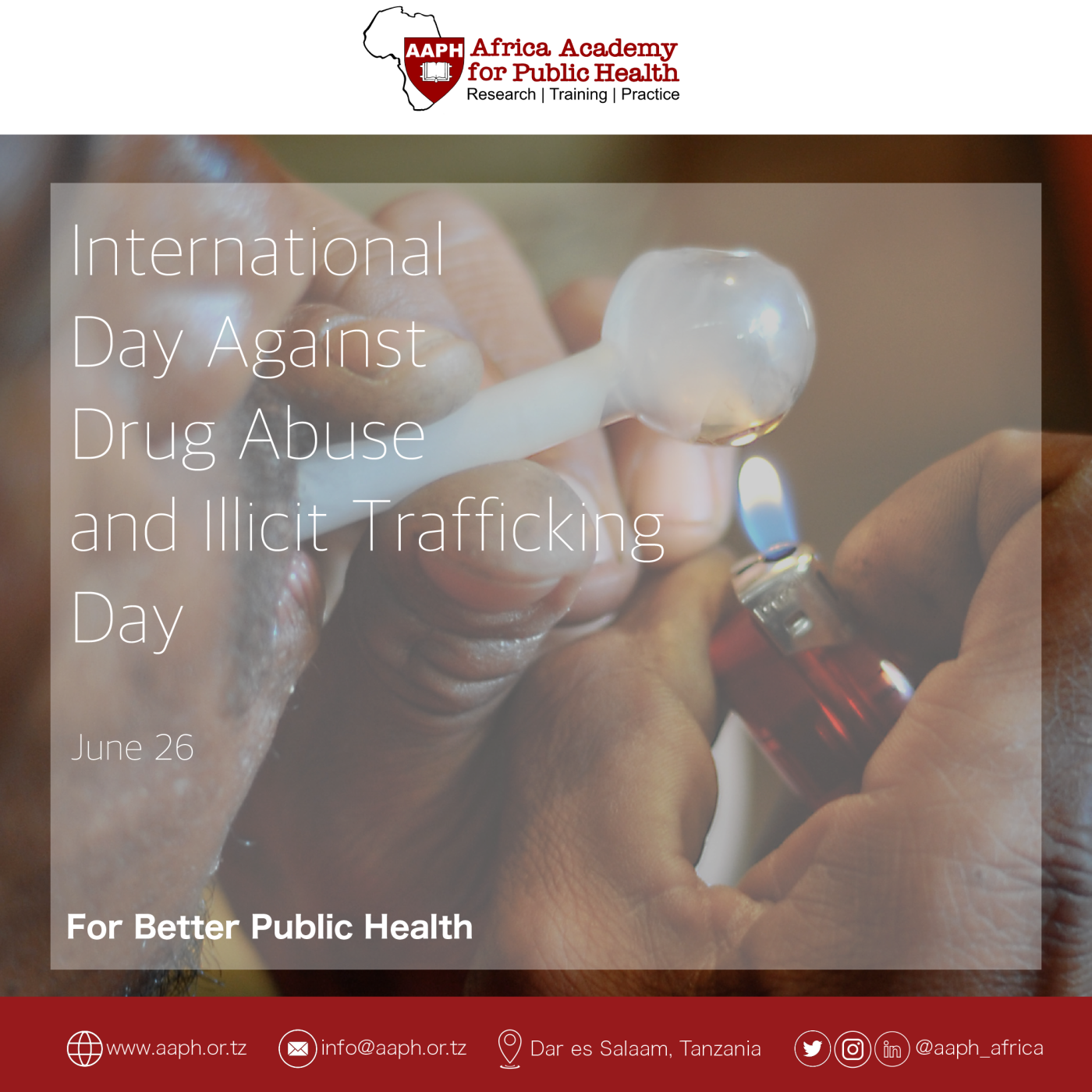
People first: stop stigma and discrimination, strengthen prevention
Drug abuse refers to the harmful or excessive use of psychoactive substances, such as alcohol, tobacco, cannabis, opioids, cocaine, amphetamines, and new psychoactive substances. Drug abuse is a serious problem that affects millions of people around the world and can cause a range of physical, mental, and social problems for individuals such as addiction, overdose, infectious diseases, violence, crime, poverty, and human rights violations.
In Tanzania, drug abuse is a growing concern, especially among young people. There is limited country-level data to estimate the number of people who use drugs (PWUD) in Tanzania. However, in 2014, it was estimated that there were between 41,000–71,000 people who inject drugs (PWID).[1] According to the 2018 report by the United Nations Office on Drugs and Crime (UNODC), Tanzania has one of the highest prevalence rates of cannabis use in Africa, with 9.4% of the population aged 15-64 using it in the past year.[2]
Drug abuse can lead to serious health implications such as transmission of sexually transmitted infections (STIs) including HIV and Hepatitis B among people who use drug. These STIs can be transmitted through having unsafe sex or sharing infected needles and syringes, also limited access to prevention and treatment services, as well as facing stigma and discrimination increases the risk. [3] PWUD can also develop drug use disorders; medical conditions that make them use drugs in a harmful and uncontrollable way. Drug use disorders affect their ability to function well in life. However, drug use disorders can be treated and clients can recover with the right help and support. Some of the help available in our country are methadone assisted therapy (MAT), and psychosocial interventions such as counseling and peer support groups.
The importance of early intervention and support for people with drug use disorders cannot be overstated, but stigma and discrimination are major barriers in achieving this. As we aim for a world free of drug abuse, let us strengthen prevention while combating stigma and discrimination against people who use drugs by promoting language and attitude that is respectful and non-judgmental For Better Public Health.
[1] NACP. Consensus Estimates on Key Population Size and HIV Prevalence in Tanzania; National AIDS Control Programme: Dar es Salaam, Tanzania, 2014; pp. 1–34.
[2] World Drug Report 2018 (unodc.org)
[3] Likindikoki, S.L.; Mmbaga, E.J.; Mizinduko, M.; Alexander, M.; Adams, L.V.; Horsburgh, R., Jr.; Moen, K.; Leyna, G.; Lange, T.; Tersbøl, B.P.; et al. Testing for Drug-Related Infectious Diseases and Determinants among People Who Use Drugs in a Low-Resource Setting: A Respondent-Driven Cross-Sectional Survey. Trop. Med. Infect. Dis. 2022, 7, 213. https:// doi.org/10.3390/tropicalmed7090213
